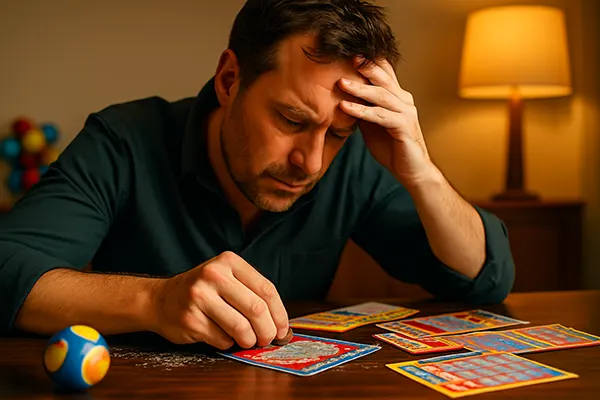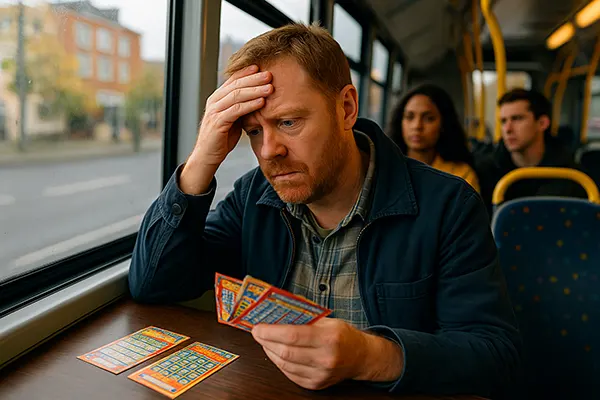
Lottery Addiction: When Entertainment Turns Into a Problem
Lottery games may seem harmless, but for some individuals, what begins as occasional fun can develop into a serious addiction. Recognising the risks and warning signs is essential in preventing long-term personal and financial harm. As of February 2025, gambling addiction linked specifically to lottery participation has raised growing concern among healthcare professionals and social service organisations across the UK.
Recognising the Signs of Lottery Addiction
Unlike other forms of gambling, lottery addiction often progresses quietly. Because purchasing a ticket is perceived as low-risk and socially acceptable, many individuals fail to notice when casual play transforms into compulsive behaviour. The line between fun and dependency is crossed when playing the lottery becomes a coping mechanism, not just entertainment.
One of the first signs is an increasing frequency of purchases. A person may start buying tickets daily, trying different types of lotteries, or spending larger amounts in hope of winning. When they experience a loss, the urge to “chase” that loss by purchasing more tickets becomes a dangerous cycle.
Emotional and behavioural changes are also key indicators. Affected individuals may become secretive about their spending, lie to family members, or express frustration and anxiety when they cannot play. Financial problems — such as unpaid bills or borrowing money to buy tickets — often follow.
How Lottery Dependence Develops
The structure of lottery games contributes to addiction. The low entry cost gives a false sense of control, and the intermittent reward system — where wins are rare but highly celebrated — reinforces repeated attempts. This reward mechanism mirrors psychological patterns found in substance abuse.
Social media and advertising reinforce the illusion of overnight success. Stories of winners receiving life-changing sums of money create unrealistic expectations. For individuals facing financial difficulties or personal challenges, the lottery may seem like the only hope for a better life.
Unfortunately, most lottery participants will lose more than they gain. Yet the psychological pull of a potential win is strong enough to override rational thinking, particularly in those prone to compulsive behaviours or suffering from untreated mental health conditions.
Real-Life Stories Behind the Numbers
Behind every statistic are people whose lives have been profoundly affected by lottery addiction. One anonymous case involves a 54-year-old man from Manchester who began playing scratch cards at the local corner shop. Within two years, he was spending over £100 a week, hiding receipts from his partner and borrowing from friends to support his habit.
Another case features a mother of three from Glasgow who fell into debt after using child support payments to purchase tickets. She shared her story anonymously through a recovery group, describing the intense shame and self-loathing that came with her behaviour, alongside the fear of losing custody of her children.
These stories are not isolated. Support groups, helplines and treatment centres across the UK report a noticeable rise in people seeking help for lottery-specific addiction. Many individuals state that the accessibility and normalisation of lottery play masked the seriousness of their behaviour until consequences became unavoidable.
The Emotional Toll on Families
Family members often suffer silently. Spouses may feel betrayed, children may witness mood swings or economic stress, and trust within households can erode quickly. In many cases, loved ones are unaware of the addiction until it leads to a financial or emotional crisis.
Shame and denial prevent many from seeking help early. Family interventions are often the first step towards recognising the issue. Support systems can play a crucial role in recovery, but they require patience, understanding, and professional guidance.
The long-term impact can be significant — from loss of employment to mental health breakdowns and family separation. Rebuilding stability requires a collective effort involving therapy, education, and community support services.

Where to Get Help: Available Support in 2025
Several trusted UK organisations offer free and confidential support to those struggling with gambling-related problems, including lottery addiction. GamCare remains one of the leading charities, providing a national helpline (0808 8020 133), live chat services, and in-person counselling across the country.
The National Gambling Support Network coordinates efforts across multiple regional services, ensuring individuals receive localised assistance. In 2025, these services have expanded their coverage, focusing specifically on underreported issues like lottery and scratch card addiction.
Other resources include the NHS Northern Gambling Clinic and online forums like Gamblers Anonymous UK. These groups offer both clinical and peer-to-peer support, helping individuals build long-term recovery strategies. Many also extend their services to family members affected by someone else’s addiction.
Steps Toward Recovery
Admitting there is a problem is the first and most crucial step. From there, individuals are encouraged to speak with a GP or contact a support group. Early intervention can prevent long-term damage and open the door to structured treatment plans tailored to the individual’s needs.
Financial counselling and psychological therapy often go hand-in-hand. Cognitive behavioural therapy (CBT) has shown success in helping people reframe their thoughts around gambling and develop healthier coping mechanisms. Group therapy also provides emotional reinforcement and a sense of community.
Importantly, recovery is not a linear journey. There may be relapses, but with the right support and persistence, lasting change is possible. Awareness campaigns and education continue to play a vital role in reducing stigma and promoting healthier attitudes toward lottery participation.
